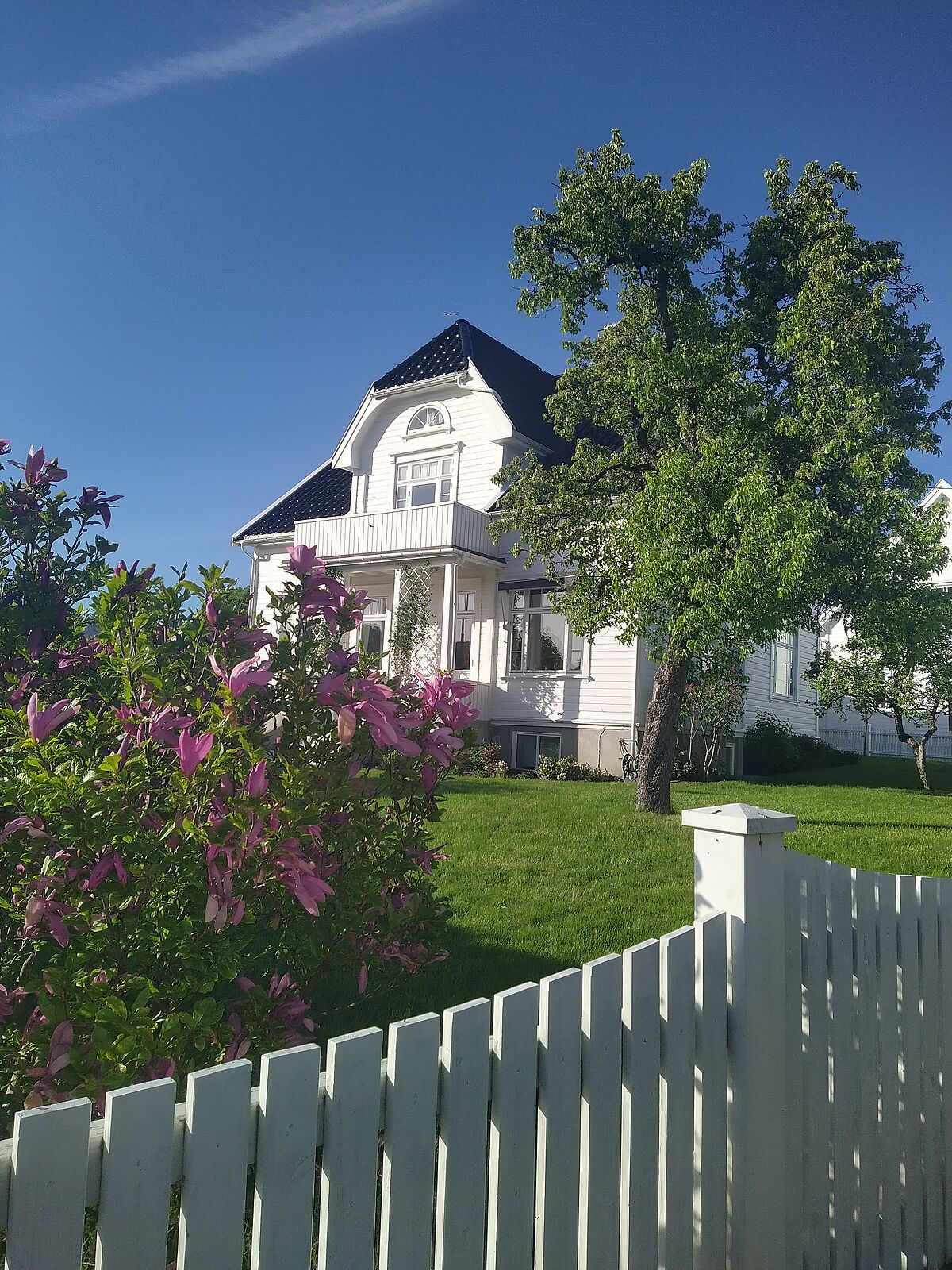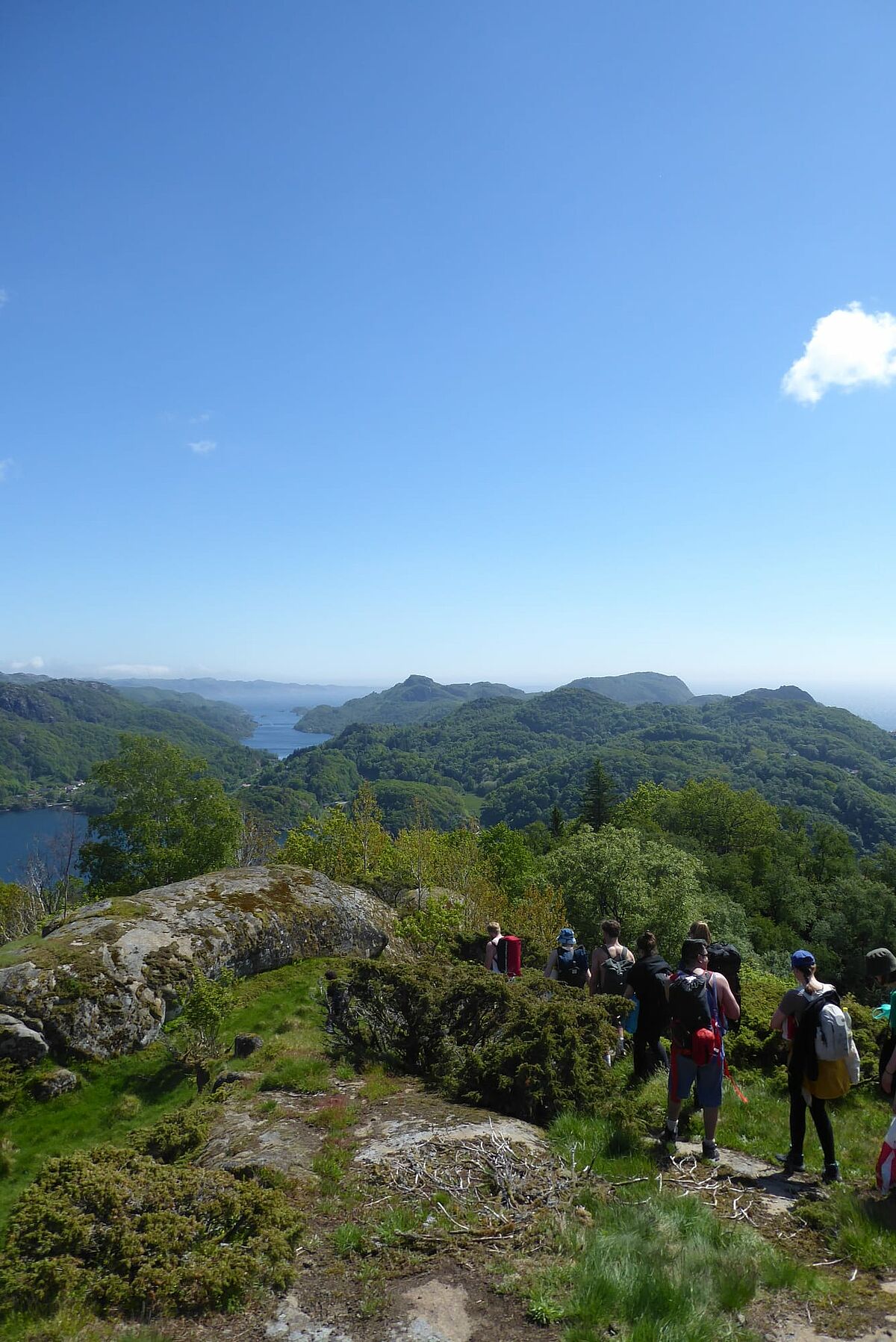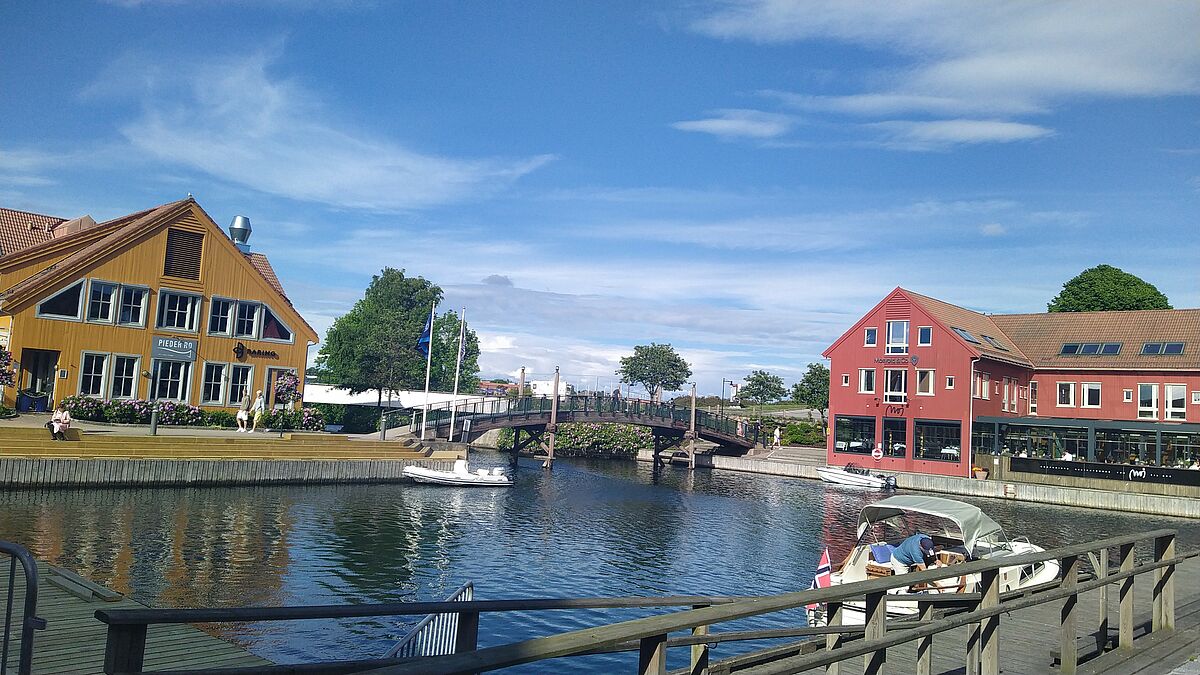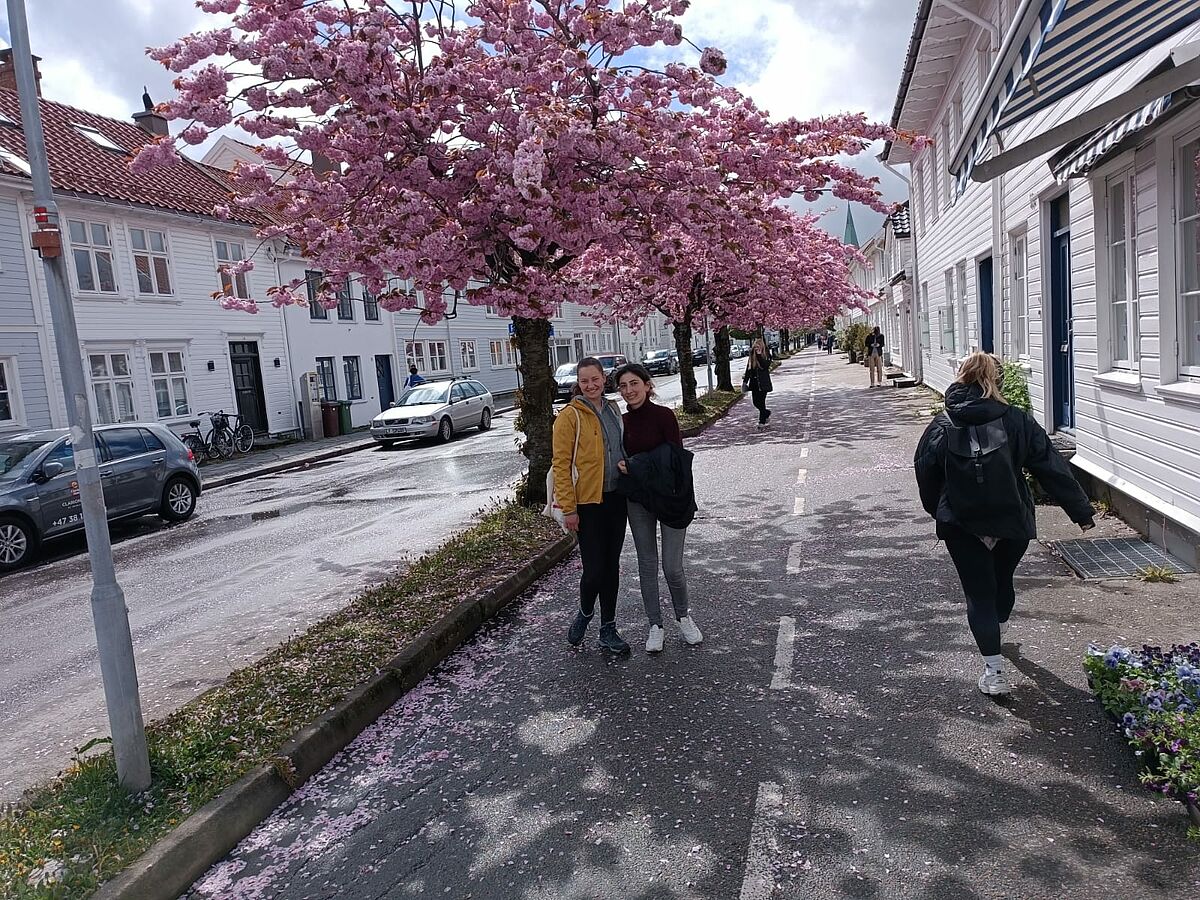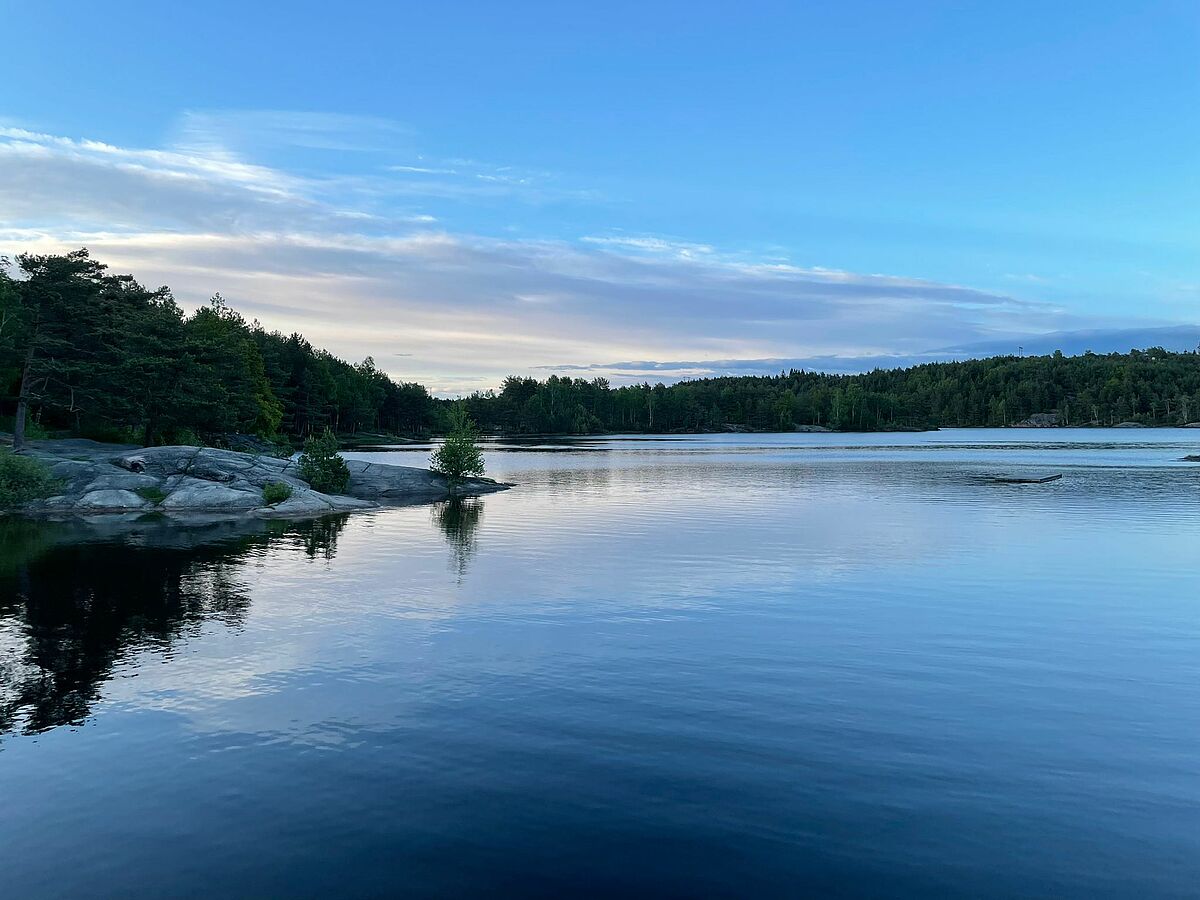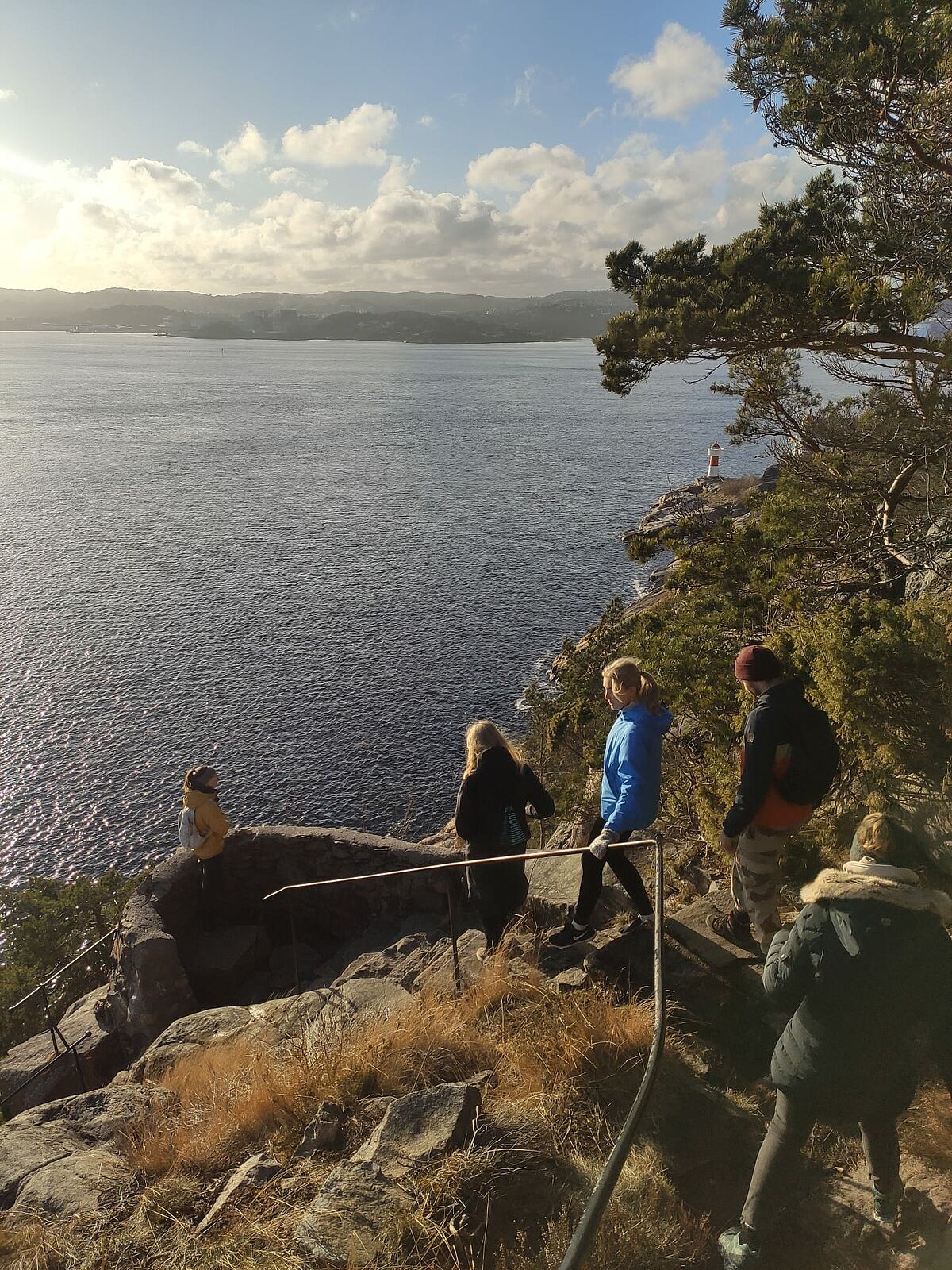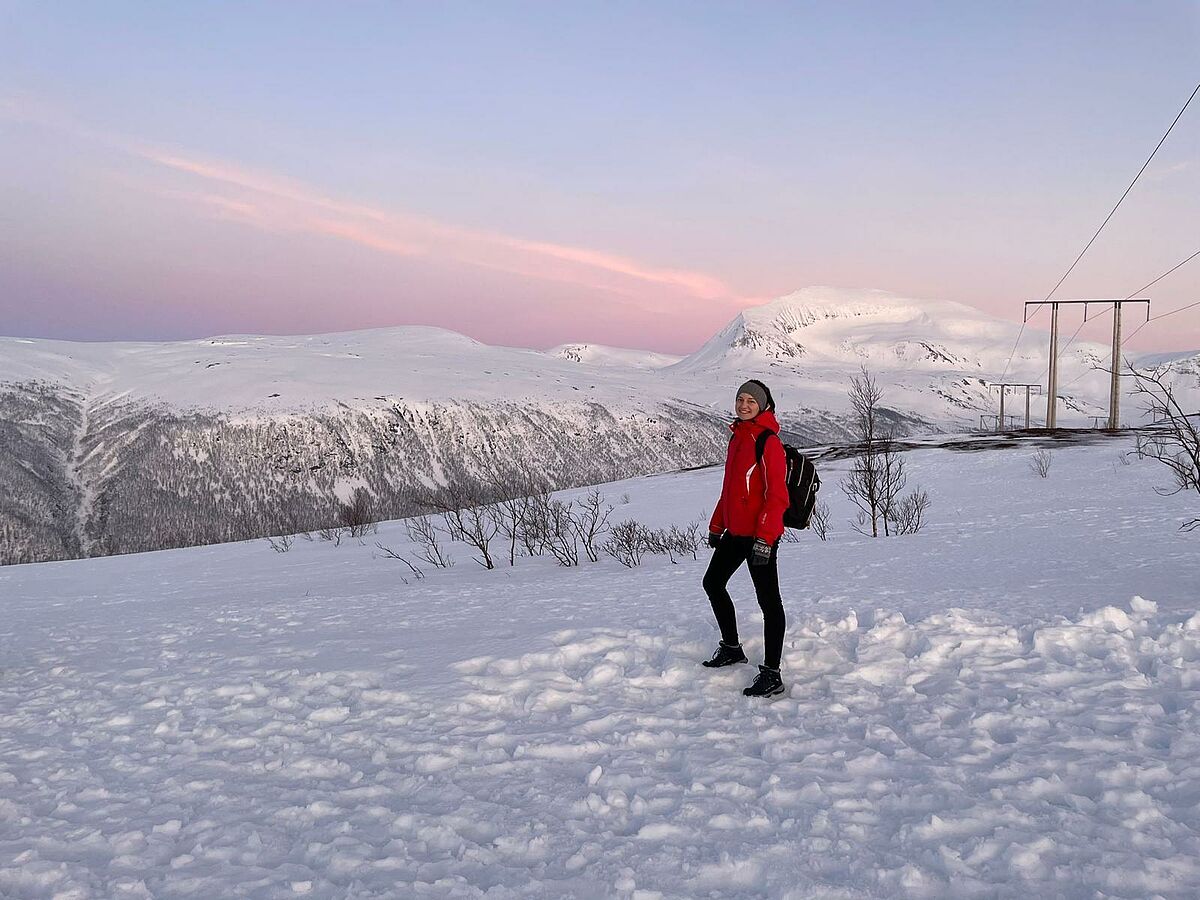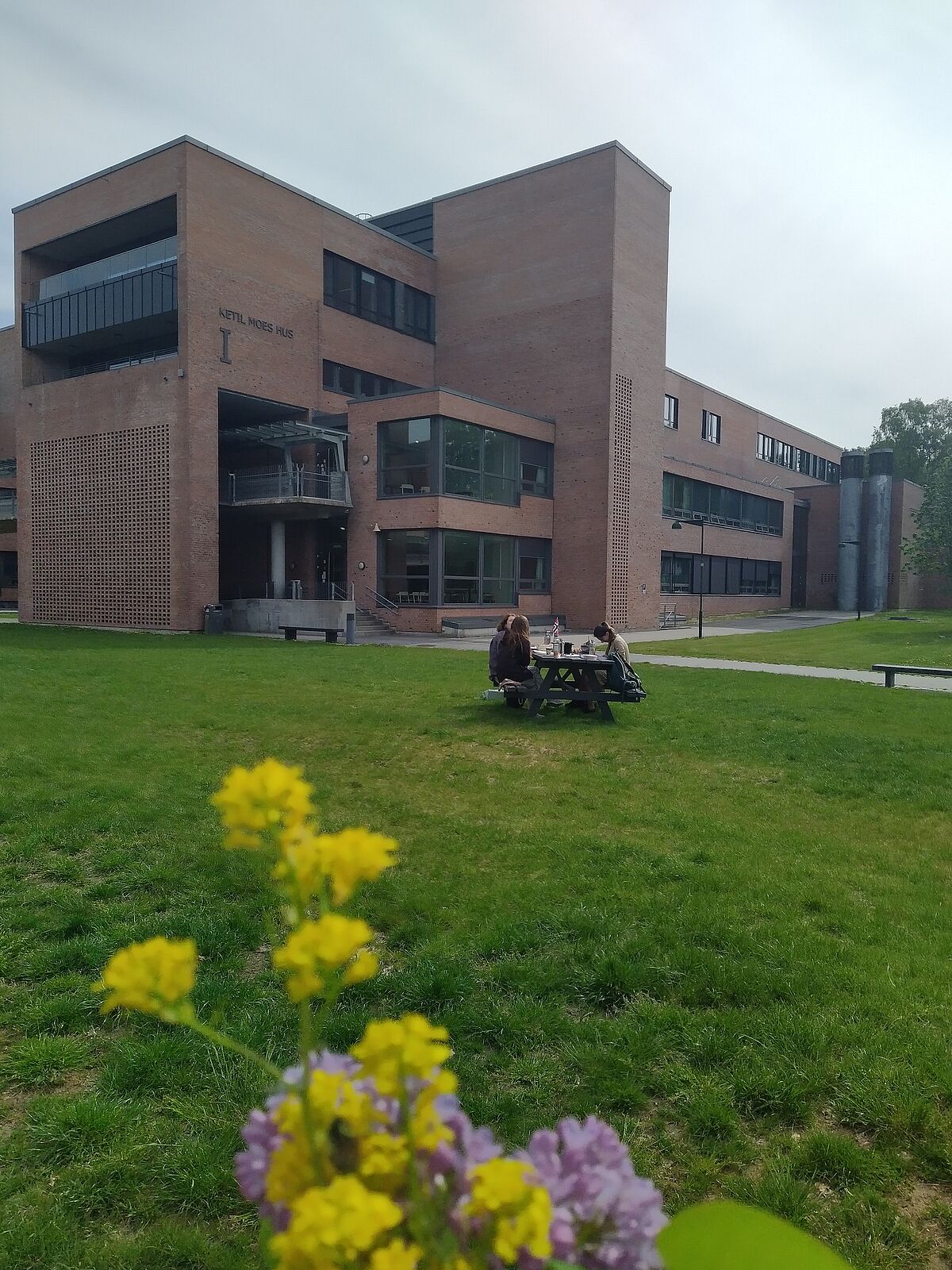Norway - University of Agder (UiA)
BRUNOST, BUNAD AND BEING CLOSE TO NATURE
Svenja H., Leisure and Tourism Management, 6. Semester, Norway, University of Agder (UiA) – Campus Kristiansand, Sommersemester 2022
My Erasmus+ started in January 2022 at the University of Agder (Campus Kristiansand) where I spent my sixth semester in the beautiful South of Norway.
Application and Preparation
I started the preparation for the semester abroad in February 2021. I knew that I wanted to study somewhere in the North of Europe and was happy to get accepted by the University of Agder which had been my first choice. I have found courses easily that would fit to my schedule at the HOST and got accepted to them in autumn 2022. However, at the semester start in January I had to change them again due to courses and exams overlapping. Although, the course changing process had been stressful (especially due to the deadline of the Learning Agreement), I felt that I got perfect support from both the professors and the International Office who were really understanding and cooperative. In the end, I took these courses with 32.5 ECTS and got 30 ECTS acknowledge at the HOST:
Norwegian for Int. Students (10ECTS) - Special Topics (5 ECTS)
International Business (7.5 ECTS) - Special Aspects of Management (6 ECTS)
Business Analytics 2 (7.5 ECTS) - Research Project (9 ECTS)
Customer Relationship Management (7.5 ECTS) - Marketing III (5 ECTS) + Creative Project (5 ECTS)
Since I still had exams at the HOST I decided to arrive in the end of January and not at the semester start, the 3rd of January. Looking back, I would not do this again as I had to cope with online classes at the UiA as well as the exam preparation and attendance at the HOST which was a lot to deal with. Also, the semester ends here quite early (15th of June) so I would have had enough time after returning to prepare and sit the exams at the HOST. By arriving later, I also missed out on the first weeks of uni life which are the weeks where the buddy groups are the most active. However, it has also not been of big trouble coming later since getting to know people is super easy when living on campus and attending lectures.
Uni life and Organisation
The life on campus has been absolutely amazing. The university guarantees each Erasmus+ Student accommodation. You can chose via the SiA App in which building you want to live and if you want to share a room or not. There are several SiA buildings all around the city and on campus. I can highly recommend the student apartments in Kaserneveien 18 or 10, which are apartments for eight people with a shared kitchen and where two people share a room + bathroom. Since most internationals lived in these buildings there was always something going on and it never got boring. Right behind the student housing are some beautiful lakes and hiking trails through the forest. The university itself is really modern. It consist of several buildings, whereby the main building facilitates the library, the cafeteria, the book shop, the big lecture halls, the student bar Østsia and the Global Lounge. The Global Lounge is a meeting place for internationals and also Norwegians where you can chat with other people, drink tea, eat cookies and let questions regarding your stay be answered by the interns of the International Office. The university also offered study rooms which can be booked via the website and which can be used for group assignments or exams. Be prepared to encounter a lot of group work. I had four courses and we had to do group work in all of them and submit several assignments during the semester to be accepted for the final examination. The lectures have been hybrid due to Covid-19 during this term but I can recommend attending every lecture in person if possible. For studying, the platform CANVAS was used which is easy to handle. In the first weeks, the International Office also offered presentations about life on campus, using CANVAS and supported every international by finding an appointment for the registration at the Police which is compulsory when living in Norway. All Internationals have also been grouped into Buddy Groups, some of which did much together until to end of the semester and some did not. My Buddy Group has unfortunately not been to active but I joined two other groups and engaged in cooking or bonfire evenings and went on a lot of Sunday Hikes to the VaffelBua at Jegersberg or Odderøya with them. On those hikes, it is ‘norwegian’ to eat waffles with jam and brunost (brown cheese), a kind of cheese that you do not necessarily enjoy if you are not Norwegian as we have realized. But it is definitely worth giving it a try.
City and Culture
Kristiansand is one of the biggest cities in the South of Norway. It had similar vibes to Stralsund, not only weatherwise but also because it is located at the sea with a beautiful harbour and a little shopping street. The city does not have many sightseeings but it has always been lovely to go on a little stroll through the city centre, to go (grocery) shopping or enjoying the view from Baneheia, the park right behind the city. The nightlife for students was quite good as well. Many students enjoyed their time in the bar Skagen or went partying in the clubs Studenten or Harvey’s. Since Norway removed the Covid-19 restrictions quite early, going out was possible and it has also been great to socialize with other students playing games, having apartment dinners, watching movies, singing karaoke at Østsia, joining the events organized by ESN, having barbeques at the lakes, going icebathing in winter and so on.
Being so close to nature allowed us to spend almost every day outside. This is a big part of Norwegian culture called Friluftsliv, meaning being outside, respecting nature. With other internationals and often with our buddies we went camping, did a cabin trip (really Norwegian without running water and electricity:) and had bonfires at the beach. Furthermore, I can highly recommend to visit other cities in Norway since the landscape, culture and language varies strongly in the different regions of Norway. The stereotype of Norwegians being rather closed than open to strangers is partially true but if you take the first step and talk to them, they are really kind and always willing to help you out. It is also true that Norwegians are proud of their culture and heritage. One could especially see that at the 17th of May, Norway’s National day. At that day, everyone dresses up real nicely – the women in their traditional clothes, the Bunads - and spends the day on the streets watching the parades and waving flags. It was wonderful being part of the celebration this Spring and it has brought me so much joy to engage in their traditions.
Tipps&Tricks
- Grocery Shopping: Close to uni are the shops Joker, Coop and Rema; the cheapest is Kiwi
- Infrastructure: really good bus infrastructure - the app for the tickets is called AKT; for longer travels (for train or bus rides across the country) use the app VY.no
- Sport: joining sport clubs is quite hard, but the Spicheren gym on campus offers amazing facilities (pool, sauna, gym, basketball/volleyball/handball courts, courses and more) for a reasonable price.
- Friluftsliv: The government supported organization BUA works like a library for outdoor stuff. You can rent tents, hammocks, skis, yoga mats, bikes, … for free.
Conclusion
All in all, I have made unforgettable memories here. I enjoyed the university life in Norway, made great friends from all over the world and learned so many new things about the Norwegian culture and people. I can highly recommend the UiA due to the amazing location and perfect organization.
Vi sees, Norge!

